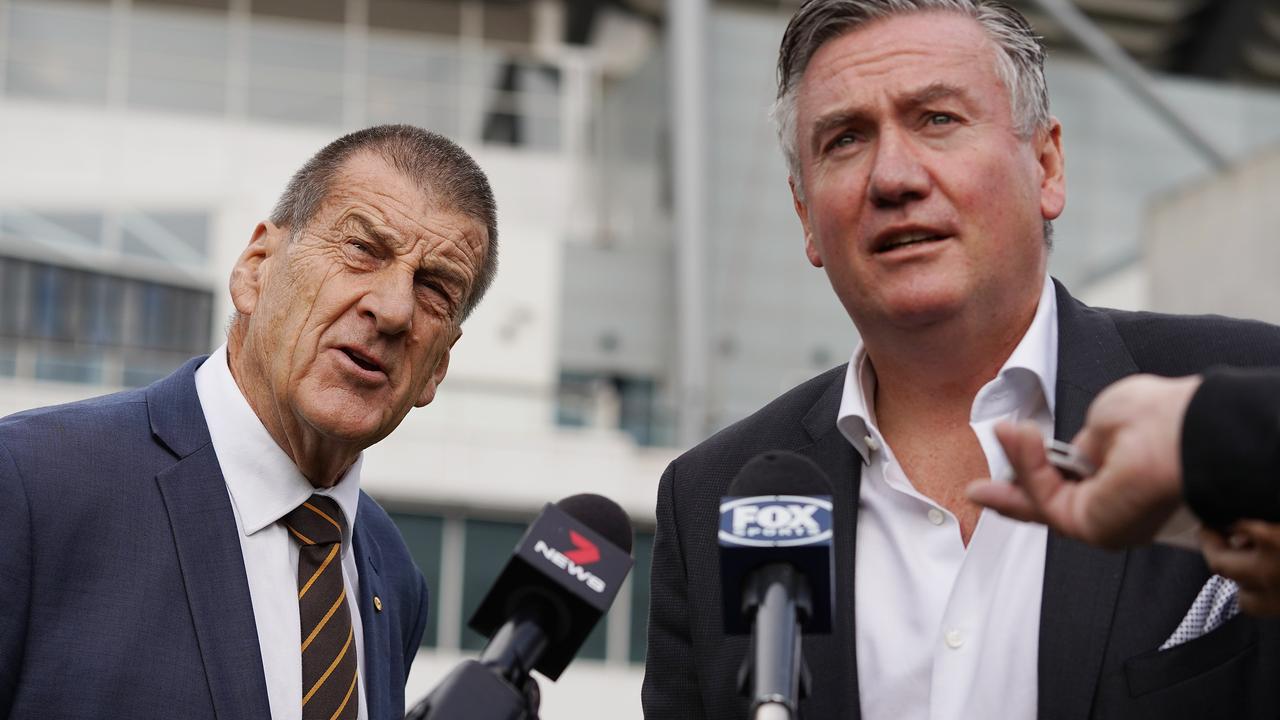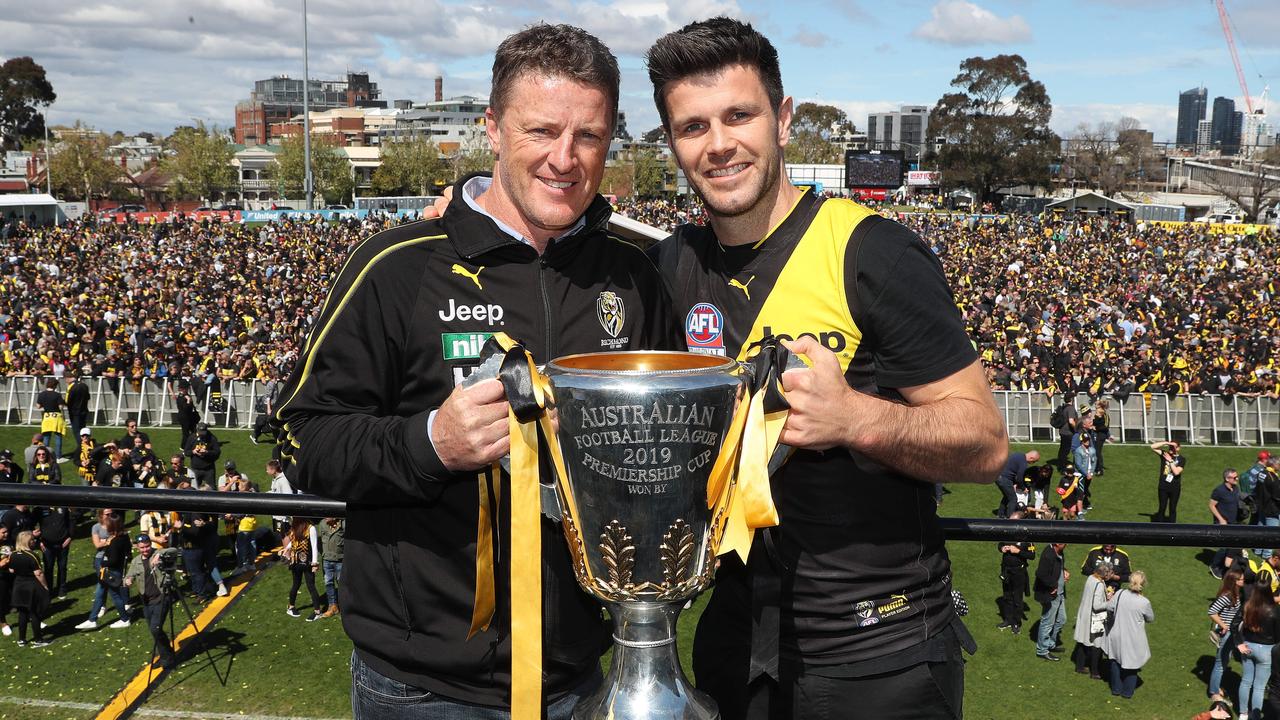AFL’s “future directions committee” will have a full agenda as Australian football has so many options for change
AUSTRALIAN football is a feast for constant change. If the fans were asked to contribute to the new AFL “futures direction committee” where would the focus be?
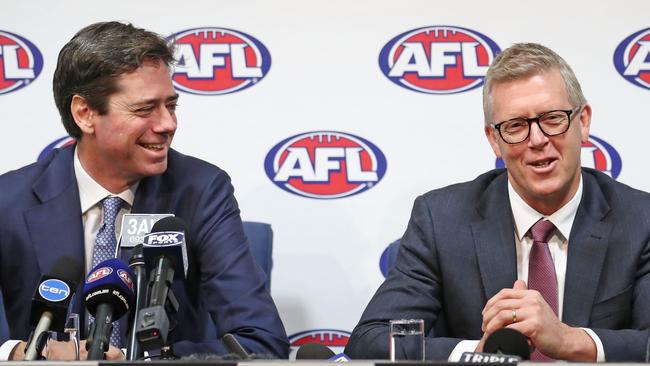
Michelangelo Rucci
Don't miss out on the headlines from Michelangelo Rucci. Followed categories will be added to My News.
IF you could change one thing in the AFL, what would it be?
Just one thing.
Remarkably, the “greatest game in the world” is an enormous canvas for change. Fixture. Finals systems, perhaps even a best-of-three grand final. Allocation of grand final tickets ... and whether the game should always be at the MCG (even after the long-term contract expires in 2057).
List sizes. Reserves teams. And that forever annoying question of how to write, interpret and call the holding-the-ball rule.
Mid-season drafts. Mid-season trades. The interchange cap. The number of reserves on the interchange bench.
Score review. Academies (allowing AFL clubs to develop teenagers as there is more and more concern for how young talent is being coached in the critical early stages of their journey in the Australian game).
Length of the game ... an agenda item that needs greater attention as some quarters move the time clock to 35 minutes.
Billy Joel could rewrite We Didn’t Start The Fire with current football themes rather than historical notes on world affairs since the 1950s.
And the agenda for the AFL’s new competition committee will inevitably reflect how Australian football can set up hours of debate on four significant panel shows across three television networks on Monday nights.
Take note how 1988 Brownlow Medallist Gerard Healy, the chairman of On The Couch on Fox Footy Channel, is not letting go of his campaign to keep “prior opportunity” in the interpretation of the contentious holding-the-ball rule.
There are, according to Healy, “powerful forces behind the scenes trying very hard, it seems, to eradicate” prior opportunity - a rule change that would make it more lucrative to tackle. This would, adds Healy, undermine “the most fundamental element of the game” - rewarding the player who has a focus on winning the ball.
New AFL football boss Steve Hocking has built his first “competition committee” with men and women from club land - presidents, chief executives, coaches, football department leaders and players.
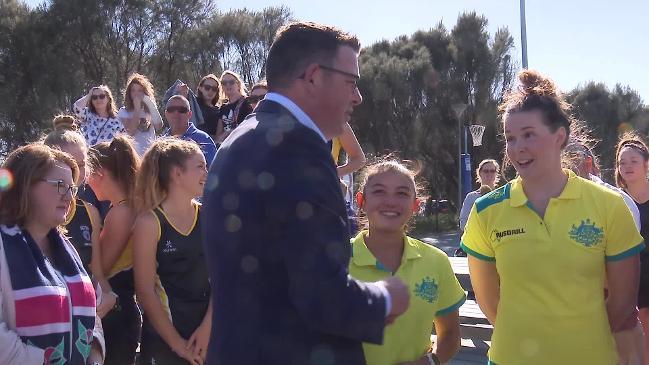
SA football, well the AFL variety, will be represented by Adelaide Football Club chief executive Andrew Fagan and Port Adelaide football chief Chris Davies, both of who have vast experiences outside Australian football. Fagan has a long story in rugby. Davies came from cricket with a playing record in the Sheffield Shield with SA.
But if you - the football fan - could complete the baker’s dozen as the 13th voice on this new committee and could bring just one - and only one - concept to the table, what would it be?
In the summer, when the agenda for sportstalk on radio became drier than Mark Bickley’s rain gauge, this question prompted Graham Cornes to suggest Australian football go back to its original rules: No behinds. Just goals on the scoreboard.
Interesting. Would the AFL endorse draws ... or play extra time in the home-and-away series, as it does in the finals?
The fans - as most people in any field - will often speak from their hip pocket. Cheaper tickets - and cheaper food and drink at the ground. The Port Adelaide fans were livid on social media while shelling out $6.20 for a bottle of water while enduring the afternoon heat at Adelaide Oval during Saturday’s home clash with Brisbane.
Tasmania wants its own AFL team ... and outside of Tasmania there is enough emotional support for such a (once?) football-rich state, but the question of critical corporate support to fund this new team is never answered well enough. It would be fascinating to read a report on the “return on investment” for a team on the Gold Coast or western Sydney compared with one in Hobart (or Launceston).
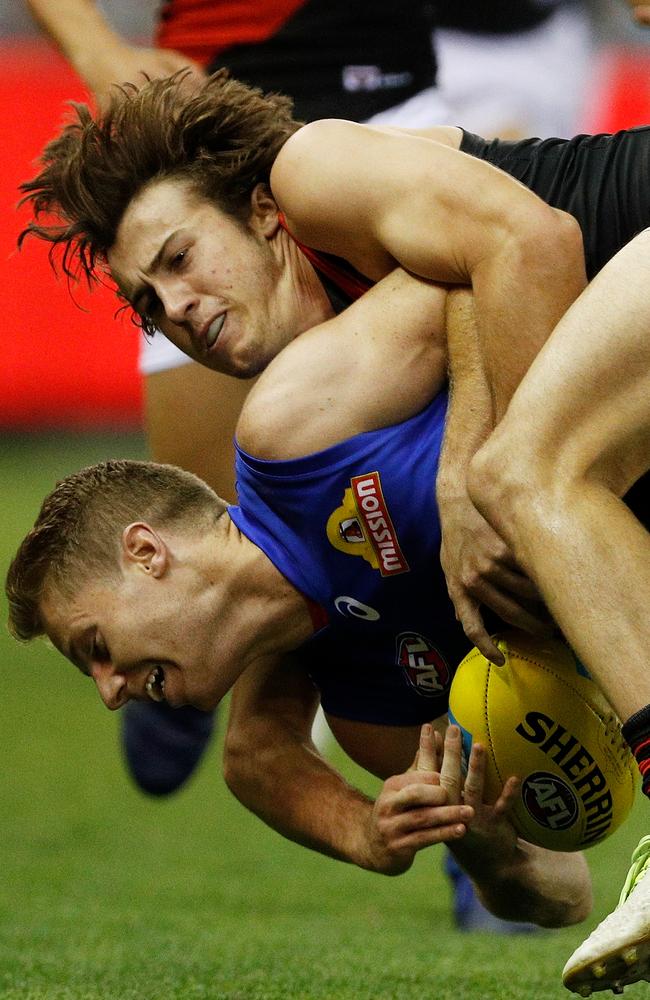
Australia’s strongest and most-financial domestic league, the AFL, never will be short of discussion points nor ideas for change. But if you were restricted to just one chance to leave a mark on the Australian game, what would you do?
Geelong president - and former AFL commissioner - Colin Carter gives Hocking’s committee a massive well of experience, intelligence and wisdom. His much-justified personal battle to have Australian football complete its history book - by noting premierships were won well before the VFL was formed in 1897 - probably bypasses this committee’s agenda.
But Carter’s understanding of football, business and the business of football will add credibility to a committee that cannot simply become a talkfest.
It would be interesting to learn just who turned off their mobile telephones last week to ensure there was no call from Hocking’s office. One senior football administrator says he no longer wants to be on any AFL committee because he finds himself compromised when the league makes findings that contradict his views - or his understanding of what the committee was to achieve.
And there is the memory of long-serving football official Geoff Walsh who several years ago threw up his hands around an AFL table to tell the league’s executives: “What difference does it make what I think? You listen to us - and then make the decisions you were always going to make and add, ‘We did consult you ...’”
Take note the new “competition committee” is to make recommendations - not changes to the game. And they will not be short of personal agendas to roll through their meetings.
This might be the beauty of Australian football. So many opinions, so many suggestions ... so much debate. But if you could change just one part of the game, what would you do?
QUOTE OF THE WEEK
Forwards win Coleman Medals. Midfielders win Brownlow Medals. But do not underestimate the importance of defenders in winning AFL premiership medals.
HALL of Fame Legend MALCOLM BLIGHT
REALITY BITES
CALL THE DOCTOR
MICHAEL Christian always was to be judged - in his new role as the lone AFL match review officer - on the question of consistency. After two months of pre-season and premiership football, the body of work from Christian’s office is building up to allow for comparisons of his judgments.
There are three significant “bump” calls from Christian that merit reflection:
ROBBIE GRAY (Port Adelaide) banned for one game for his head-high bump of West Coast defender Jeremy McGovern in the first week of the JLT Community Series practice matches. The Eagle was taken off the field and did not return - and why would he in a meaningless pre-season game played in demanding heat in Perth?
RICHARD DOUGLAS (Adelaide) banned for one game for his head-high bump of Essendon midfielder Zach Merrett in the opening round. Merrett also was benched, but did play the next week for the Bombers.
AARON SANDILANDS (Fremantle) fined $2000 for his head-high bump of Gold Coast midfielder Jaryd Lyons in Perth at the weekend. Lyons did play out the game ...
So it appears Christian will judge the same action on the consequences of the bump. No concussion, a fine. Concussion, a suspension. The medical report is now vital to the match review process.
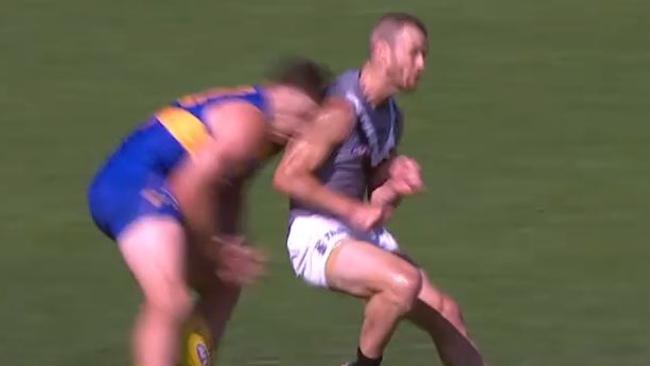
Christian, who has been superbly transparent with his weekly summaries, is not hiding how consequence determines his findings. He says there are three aspects to his grading the “impact” of a bump that determines the difference between a fine and a suspension.
“First,” says Christian, “there is the look of the blow; the look of the force.
“Second, the player reaction.
“Third, the medical report.”
Consequence is clearly more relevant than action.
As Christian explained the difference between his three bump reports this season, he said: “Jaryd Lyon stayed down for 30 seconds or so. He got up and was able to play the game out.
“Taking into account the medical report, the grading only came to low because (Lyon) was able to play on.
“The level of impact of Richard Douglas (on Merrett) was because of the three factors I spoke about ...”
And, clearly, because Merrett was taken off the ground - and kept out of the game as the Essendon medicos worked to the appropriately conservative approach on assessing a player who has taken a hit to the head.
Consequence - rather than action - will create much debate.
BRAD’S CALL
AND it has with Brownlow Medallist BRAD HARDIE.
His call on the three bumps: “Robbie Gray copped a week for clipping Jeremy McGovern high in the pre-season when the ball was there to be won. And Richard Douglas had a similar situation with Zach Merrett. Again, the ball was there in the contest.
“But both of those blokes copped a holiday while Sandilands basically gets off scot-free with the ball nowhere in sight. He should go straight out and buy a Lotto ticket.”
CENTRE OF THE UNIVERSE
WHY does the panel of Channel Nine’s Footy Classified persist with the theme that if an AFL player was based in Melbourne - rather than at a non-Victorian club - he would be a “super star”?
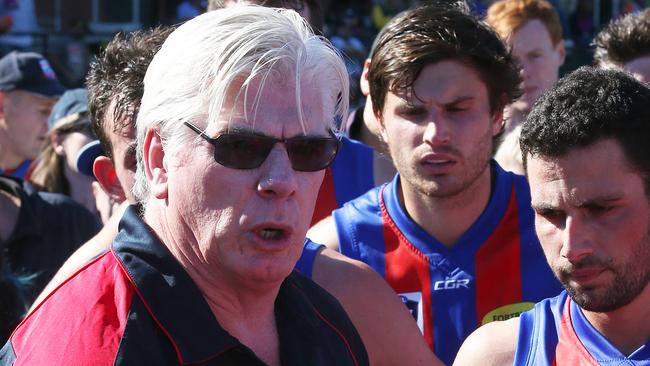
RESERVES DEBATE
AFL reserves teams in State league competitions always will spark debate - and concern for the imbalance between the developing professionals on AFL lists and the semi-professionals at traditional VFL, SANFL and WAFL teams.
The alarm bell rang through the opening round of the VFL last weekend when “traditional” clubs without AFL players were smashed by AFL reserves teams - Frankston (107 points), Coburg (102), Port Melbourne (65) and Williamstown (37). Werribee lost to Geelong, but by just four points.
Port Melbourne and former Crows coach GARY AYRES is expecting this storyline to deepen as more players leave the AFL but do not return to the State leagues.
“We have had a consistent run of topping up our list (at Port Melbourne) with players who want to play at the highest level,” said Ayres, “but this summer, a lot of players we spoke to who were leaving the AFL wanting less commitment and were happy to play in the ‘burbs.
“They were keen to look at job prospects and that’s something our infrastructure couldn’t handle.
“It was very difficult to convince them to stay in the VFL, which we believe is the best standard of footy outside the AFL. It might have been a one-off (period), I’m not sure, but it has been hard to get players coming out of the AFL.”
In Adelaide, the absence of former Power and Gold Coast player NATHAN KRAKOUER from the SANFL - he has preferred to play in the Adelaide Footy League with Prince Alfred Old Collegians - is revealing of the same theme Ayres has noted in the VFL.

